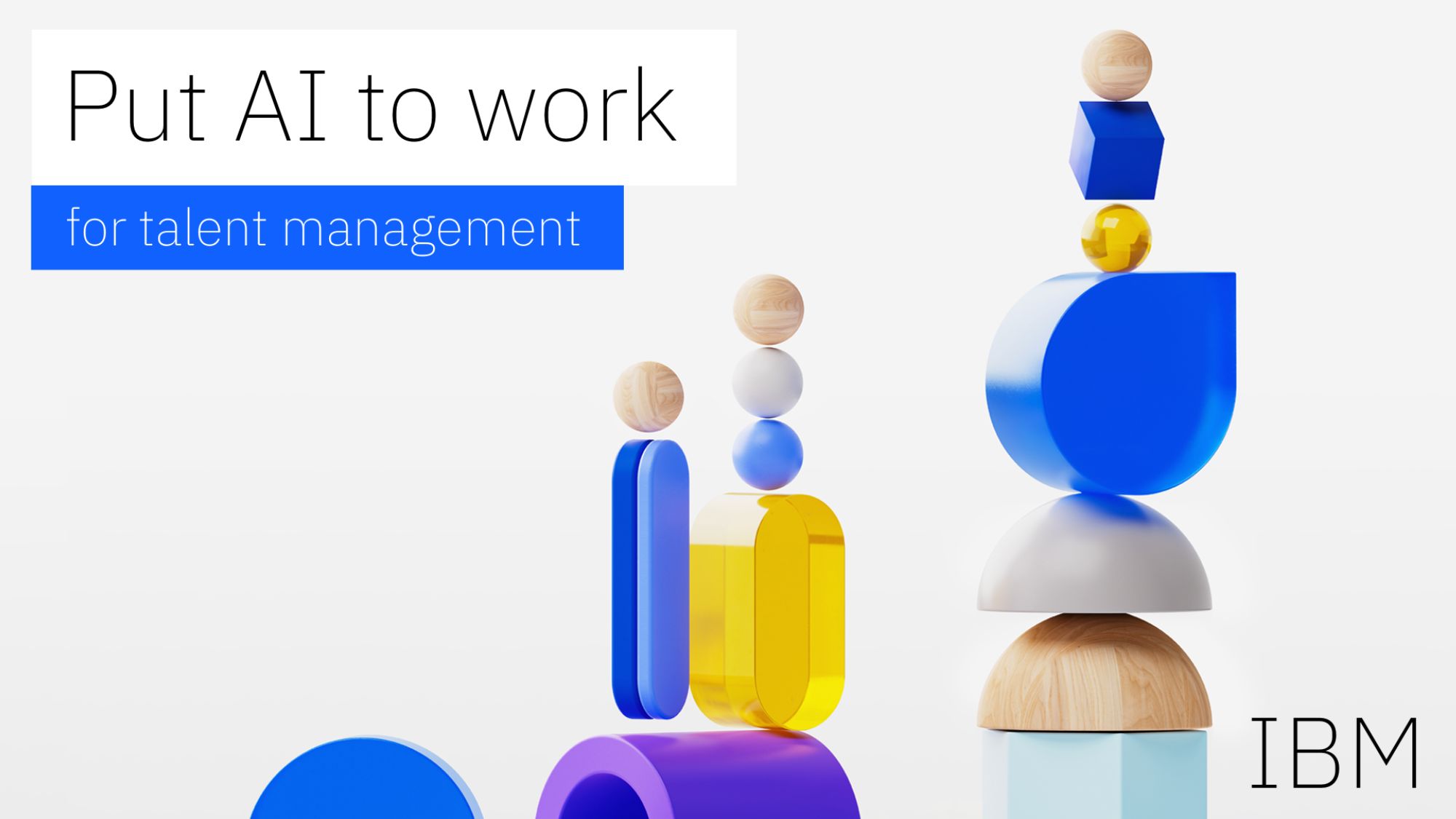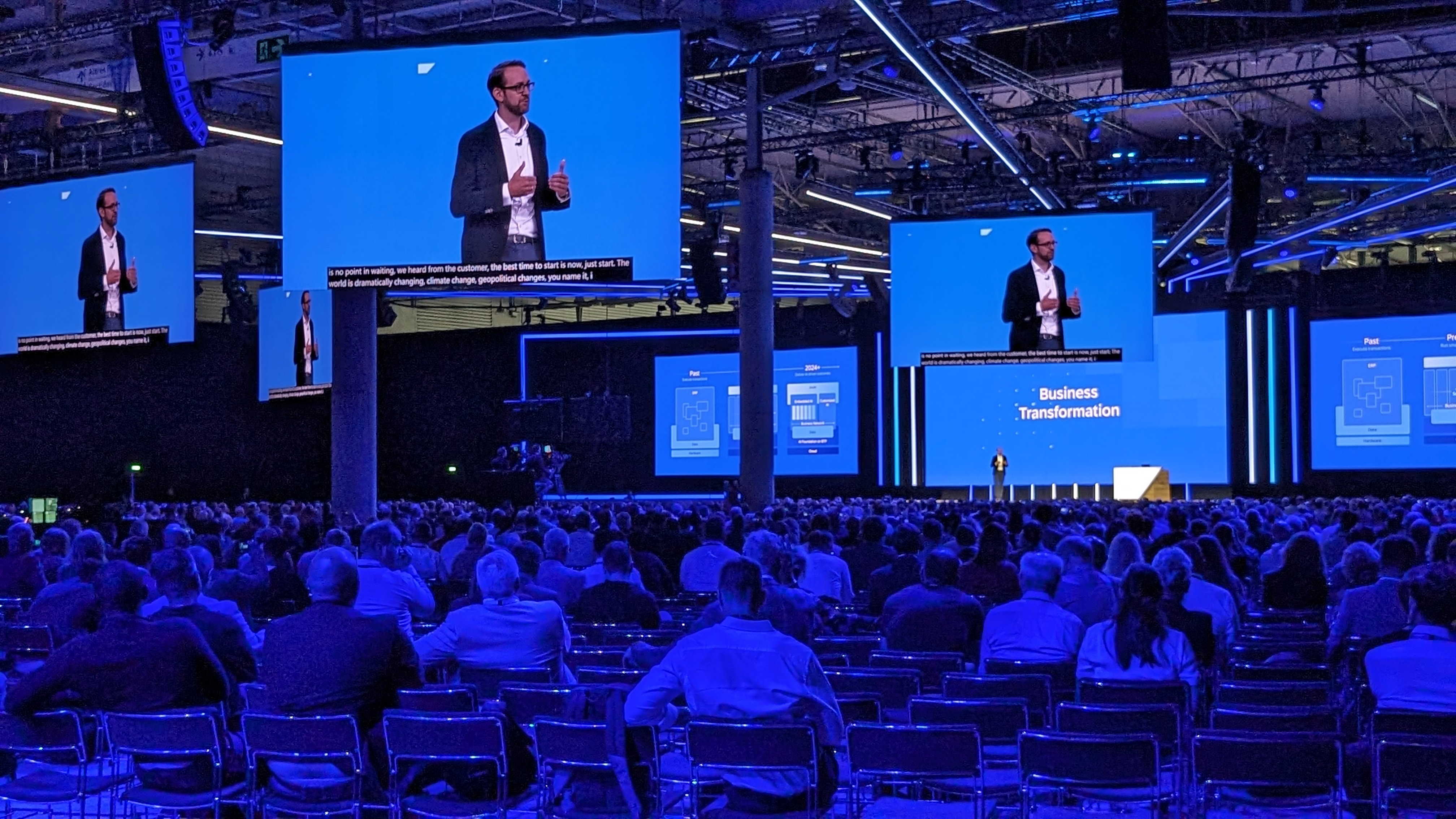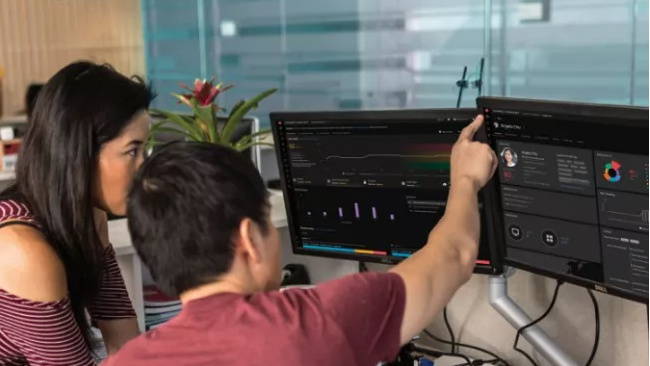SAP goes modular with latest Business Suite version
SAP aims to best recession with the launch of its latest, modular version of its Business Suite by providing customers with faster return on investment.


SAP has split its business software suite into modules with the launch of its latest version 7 today.
The German software maker said the modular nature of the new Business Suite 7 would help its customers respond more quickly to the economic downturn at the same time as reducing any barriers to upgrading.
The package also builds on the firm's acquisition of business intelligence (BI) software vendor Business Objects last year, by using select analytics capabilities from the joint product portfolio.
Analyst firm Gartner said that such a modular approach would likely prove popular.
"Today, large enterprises are sceptical of IT projects that involve foundational investments that aren't tied to delivering fast value to users," said Jeff Woods, managing vice president of enterprise resource process (ERP) and supply chain management (SCM) for Gartner.
"Big projects that only promise a foundation for future value delivery are too risky, too costly, and the benefits are difficult to justify to business leaders. Enterprises want integrated IT solutions that require only investment that is tied to immediate business value - but without losing the cost, information integrity and process integrity benefits that a strategic suite provides."
To deliver this modular suite, SAP has developed what it calls value scenarios' that offer end-to-end business processes with a focus on industry-specific outcomes that span organisational boundaries and application silos.
Sign up today and you will receive a free copy of our Future Focus 2025 report - the leading guidance on AI, cybersecurity and other IT challenges as per 700+ senior executives
SAP said value scenarios would allow customer to implement version 7 of the suite in a step-wise fashion and deployed as customers need them.
Examples of industry-based value scenarios include "integrated product development" for discrete manufacturing industries, "collaborative demand and supply planning" for high tech and consumer products companies, and "integrated sourcing and procurement" for all industries.
A 25-year veteran enterprise technology expert, Miya Knights applies her deep understanding of technology gained through her journalism career to both her role as a consultant and as director at Retail Technology Magazine, which she helped shape over the past 17 years. Miya was educated at Oxford University, earning a master’s degree in English.
Her role as a journalist has seen her write for many of the leading technology publishers in the UK such as ITPro, TechWeekEurope, CIO UK, Computer Weekly, and also a number of national newspapers including The Times, Independent, and Financial Times.
-
 Trump's AI executive order could leave US in a 'regulatory vacuum'
Trump's AI executive order could leave US in a 'regulatory vacuum'News Citing a "patchwork of 50 different regulatory regimes" and "ideological bias", President Trump wants rules to be set at a federal level
-
 TPUs: Google's home advantage
TPUs: Google's home advantageITPro Podcast How does TPU v7 stack up against Nvidia's latest chips – and can Google scale AI using only its own supply?
-
 UK firms are pouring money into AI, but they won’t see a return on investment unless they address these key issues
UK firms are pouring money into AI, but they won’t see a return on investment unless they address these key issuesNews An SAP report projects increased AI investment, but cautions that too many organizations are taking a fragmented approach
-
 Digital immaturity is holding back growth in the UK
Digital immaturity is holding back growth in the UKNews Research from SAP shows a lack of digital maturity is holding back enterprise digital transformation goals.
-
 Put AI to work for talent management
Put AI to work for talent managementWhitepaper Change the way we define jobs and the skills required to support business and employee needs
-
 SAP has found a way to bring us all on the digital transformation journey
SAP has found a way to bring us all on the digital transformation journeyAnalysis From Joule to WalkMe, Sapphire 2024 was all about how generative AI can make everyone’s job that little bit easier – and this is just the start
-
 SAP just appointed its first chief AI officer
SAP just appointed its first chief AI officerNews The company veteran will lead a new SAP business unit dedicated to the growth and progression of its AI offering
-
 SAP treads a fine line with restructuring plans amid generative AI push
SAP treads a fine line with restructuring plans amid generative AI pushAnalysis SAP said it plans to integrate generative AI tools heavily within operations, but has been keen to emphasize this won’t equate to mass job cuts
-
 FDM Group strikes SAP partnership to train next generation of tech consultants
FDM Group strikes SAP partnership to train next generation of tech consultantsNews New collaboration aims to meet the growing demand for SAP expertise and bridge the wider digital skills gap
-
 More than a number: Your risk score explained
More than a number: Your risk score explainedWhitepaper Understanding risk score calculations
